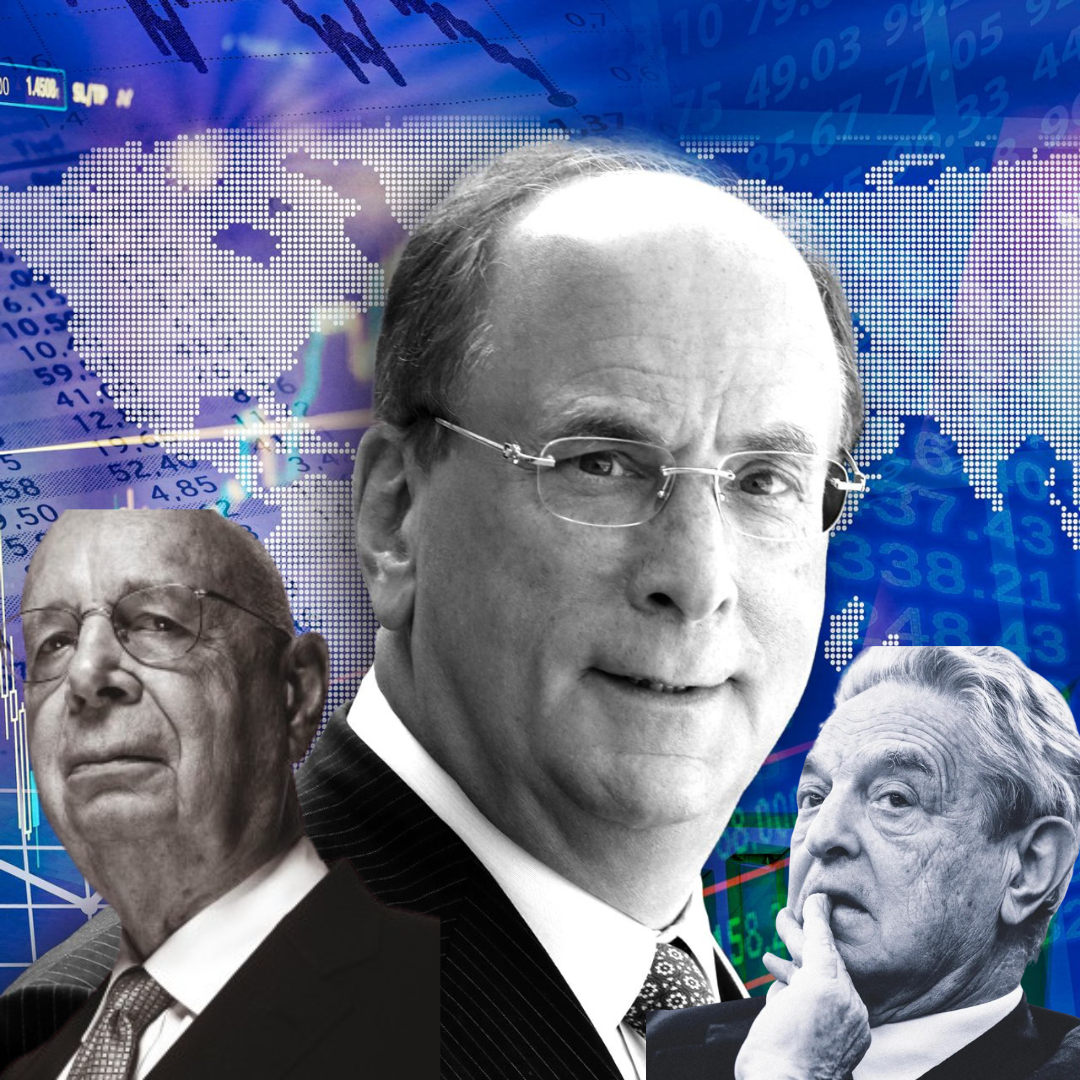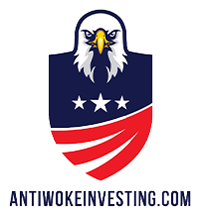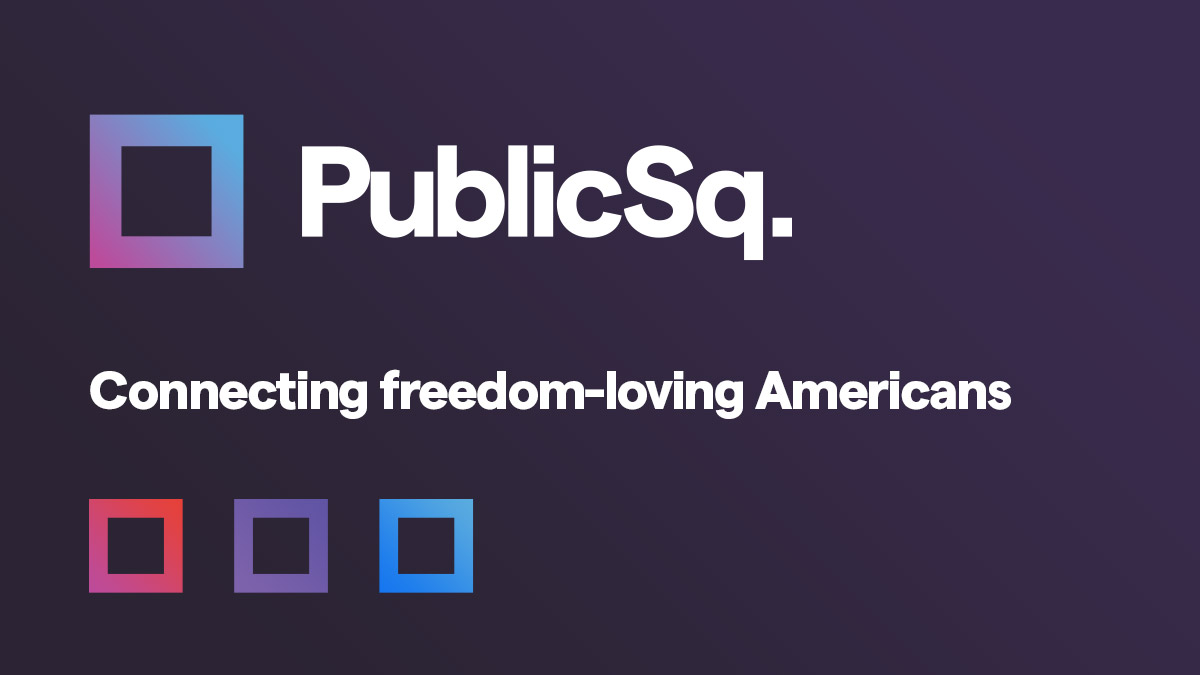"Don't let Radical E.S.G Kill Your Financial Future"
What Is Environmental, Social & Governance?

Recently everyone has been exposed to the radical lefts ideology that they want for America. They want everyone to submit to their leftist woke ideology or be canceled, that’s it, PERIOD! It seems that no one can escape from being exposed to the radicalism that the left wants to put on America, and the financial world is no exception.
Environmental, Social & Governance (ESG) is a set of principles employed by organizations to measure the sustainability and societal impact of their operations. ESG focuses on recognizing and managing potential risks associated with corporate activities including environmental, social, and governance issues. Investment managers including; Blackrock, State Street, Vanguard, and Institutional Shareholder Services, are influencing, in a negative way, on how corporations will respond to social issues.
At the end of the day you invest your money to maximize profits coming into your retirement savings account.
"Major investment managers like BlackRock and Vanguard are members of global climate organizations that strong arm asset managers to vote against company leaders if they are not on track to reach net zero gas emissions."

What Is The Real Situation With ESG?

Blackrock and Vanguard are the largest investment managers in the world. They’re giving company asset managers two options, either fall in line and vote for the Woke ESG platform or face the consequences. Even if that could lead to lower returns on investments in your retirement portfolio, these asset managers believe that they, NOT you, should be in control on how environment and social issues are solved. Should you really be forced to put your hard earned money in an investment that is going to likely bring much lower financial gains in the name of stopping “climate change,” (which is a highly questionable & debatable theory), and becoming more socially Woke? While very few people would take lower investment returns in the name of stopping climate change, the overwhelming majority of people want to see maximized returns on their portfolios, not bowing to the woke agenda.

To further the case of how the climate change alarmist play both sides of the coin, a recent article written by the Harvard Business Review stated “There’s also some evidence that companies publicly embrace ESG as a cover for poor business performance.” A recent paper by Ryan Flugum of the University of Northern Iowa and Matthew Southern of the University of South Carolina reported that when managers underperformed the earnings expectations (set by analysts following their company), they often publicly talked about their focus on ESG. But when they exceeded earnings expectations, they made few, if any, public statements related to ESG.

ESG Investment managers also looks to divest from companies that they deem “too harmful” for society such as gun manufactures and beer companies, or maybe they label them a danger to the environment such as oil and gas stocks. But it doesn’t just stop there! Companies that don’t have enough equity, diversity, equal pay or board members that investment managers find acceptable, these companies will find them at the mercy of Blackrock and Vanguard investment managers looking to exclude them from the portfolio.
Who Enforces Environmental Social Governance (ESG) Standards?
The ultimate enforcement of Environmental, Social & Governance (ESG) criteria is determined by the investment managers including Blackrock and Vanguard. The underlying principles are rooted in what these major asset managers feel is appropriate and ethical behavior for companies to adhere to. They may look for a company’s environmental impact including potential emissions, social issues including diversity and inclusion, and corporate governance including executive compensation and board diversity.
These large asset managers will then decide whether a company is compliant with their ESG standards, if not the company may be excluded from the portfolio depending on how serious the violations are.
This is a huge problem as two large investment firms are dictating on what products are good for the world and which ones aren’t! With nearly 20 trillion in managed assets between these two companies, they really can dictate the winners and losers in the financial market.
Don't allow woke ESG investments slow down your retirement! Click here to put your life back on track for financial freedom.
How Does ESG Affect Me?
The Woke left is becoming more radicalized. They DON’T want you to invest your money how you see appropriate for your lifestyle. When someone gives their money to a financial investor they want to see a strong return on the money. Not so fast, what many people don’t realize is that global ESG funds have underperformed the markets with returns much lower than non-ESG funds.
Take for instance a product and a bi-product that we use in our everyday lives, petroleum, they’re not considered ESG compliant and therefore cancelled from major portfolios. Just think about that, petroleum is used in everything from car parts to pens but because they’re not considered an environmentally conscious product they must be cancelled! How long will we allow this to go on?
FAQ
Asset managers are professionals who specializes in managing financial assets and investments. They are typically responsible for providing advice to their clients on how to manage their portfolio of investments, as well as researching and selecting the best investment opportunities. Asset managers have an important role in helping individuals or organizations achieve their long-term financial goals by making intelligent decisions on where to put their money and when to buy or sell investments. Asset managers can also provide services such as portfolio monitoring and management, risk analysis, asset allocation, and more. Ultimately, it’s the asset manager goal to help their clients maximize value of their financial resources over time.
A Net Zero initiative is a strategy/plan to become “carbon neutral” by a certain future date, such as 2040 or 2050. In theory, this means that a company will engage in activities that will reduce emissions to the same level that their business activities produce carbon emissions. These strategies generally have very high costs and questionable effectiveness, which is bad for business and of very little value to the climate.
Just because you’re not invested in “ESG” funds doesn’t mean your portfolio isn’t woke. If you are invested in vehicles such as mutual or ETFs, identify if the asset manager is a member of a global climate change organization…such as NZAMI or Climate 100+. Membership in these organizations obligates the asset manager to apply pressure to companies they control stock in to adopt Net Zero climate emissions objectives…which are bad for business. If you invest in individual companies, use ESG ratings services such as Morningstar to try and identify if the company is “woke” and focused on political agendas or is politically neutral and focused on maximizing profits.
No, absolutely NOT! Your financial advisor has a fiduciary responsibility to maximize returns on investments, NOT prioritizing climate change or advocating for other social issues.
“At its core, ESG is merely partisan politics masquerading as responsible corporate governance. A major ESG ‘policy centerpiece’ is stifling investments in oil and gas, and Wall Street firms have ‘bragg[ed] about their coordinated efforts to choke off investment in energy.’ Boycotting certain energy investment, however, is just a subset of the types of ESG-related goals. The list includes, for example: ‘climate change (e.g., reporting on climate change, risks of climate change, greenhouse gas emissions goals),’ ‘sustainability reporting,’ and other ‘energy-related’ issues. ESG goals can also include other policy concerns, such as ‘fake news dissemination’ or ‘gun control.’ Access to abortion has even become part of ESG.”
“Corporate America’s collusion in pursuit of ESG goals may violate federal or state antitrust laws. Antitrust law is generally ‘skeptical of cooperation among competitors’ over certain matters, and that includes coordination over ESG goals. The ‘traditional principles that prohibit cooperation among competitors in ways that restrict price, output, or quality’ apply ‘regardless of their values-based intent.’ As one antitrust expert has explained, ‘the loftiest of purported motivations do not excuse anti-competitive collusion among rivals. That’s longstanding antitrust law.”
“No matter how firmly a company or its executives believe in the goals of ESG, that belief does not excuse anticompetitive agreements or unlawful conduct to advance progressive policies.”
(2022, December 6).Judiciary Republicans: Woke Companies Pursuing ESG Policies May Violate Antitrust Law Judiciary Committee Chairman Jim Jordan. https://judiciary.house.gov/media/press-releases/judiciary-republicans-woke-companies-pursuing-esg-policies-may-violate
Click here to read the full story: https://judiciary.house.gov/sites/evo-subsites/judiciary.house.gov/files/evo-media-document/2022-12-06-hjc-gop-to-lubber-nzima-re-esg.pdf
The Department of Labor has now implemented a rule that allows asset managers managing investments inside employer sponsored retirement plans 401K’s to prioritize non-financial factors such as climate change or ESG into their asset management process. The result will likely be inferior investment returns and smaller retirement nest eggs.
The SEC launched the Climate and ESG Task Force within the Division of Enforcement to develop initiatives to proactively identify ESG-related misconduct consistent with increased investor reliance on climate and ESG-related disclosure and investment. The Task Force is led by Sanjay Wadhwa, Deputy Director of the Division of Enforcement.
The Climate and ESG Task Force is coordinating the effective use of division resources, including through the use of sophisticated data analysis to mine and assess information across registrants, to identify potential violations including material gaps or misstatements in issuers’ disclosure of climate risks under existing rules, and disclosure and compliance issues relating to investment advisers’ and funds’ ESG strategies.
(n.d). Enforcement Task Force Focused on Climate and ESG Issues. U.S. Securities & Exchange Commission. https://www.sec.gov/securities-topics/enforcement-task-force-focused-climate-esg-issues#:~:text=The%20SEC%20launched%20the%20Climate,ESG%2Drelated%20disclosure%20and%20investment.




